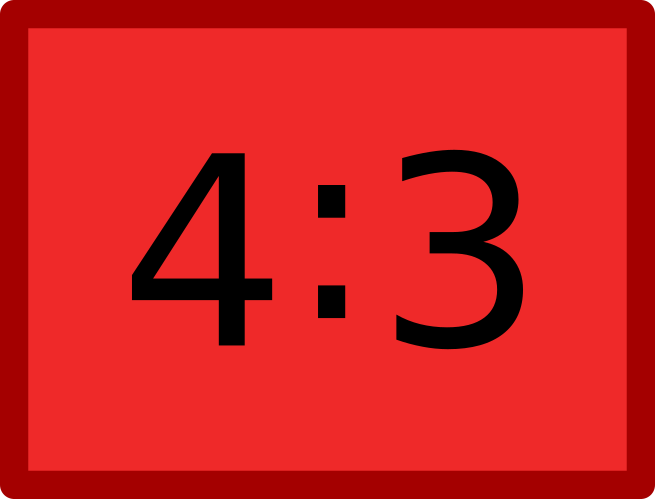
-
Ratio
In mathematics, a ratio is a relationship between two numbers indicating how many times the first number contains the second. For example, if a bowl of fruit contains eight oranges and six lemons, then the ratio of oranges to lemons is eight to six (that is, 8:6, which is equivalent to the ratio 4:3). Similarly, the ratio of lemons to oranges is 6:8 (or 3:4) and the ratio of oranges to the total amount of fruit is 8:14 (or 4:7).
The numbers in a ratio may be quantities of any kind, such as counts of persons or objects, or such as measurements of lengths, weights, time, etc. In most contexts both numbers are restricted to be positive.
A ratio may be specified either by giving both constituting numbers, written as “a to b” or “a:b”, or by giving just the value of their quotient a/b, since the product of the quotient and the second number yields the first, as required by the above definition.
Consequently, a ratio may be considered as an ordered pair of numbers, as a fraction with the first number in the numerator and the second as denominator, or as the value denoted by this fraction. Ratios of counts, given by (non-zero) natural numbers, are rational numbers, and may sometimes be natural numbers. When two quantities are measured with the same unit, as is often the case, their ratio is a dimensionless number. A quotient of two quantities that are measured with different units is called a rate.
-
Proportion (noun)
A quantity of something that is part of the whole amount or number.
-
Proportion (noun)
Harmonious relation of parts to each other or to the whole.
-
Proportion (noun)
Proper or equal share.
-
Proportion (noun)
The relation of one part to another or to the whole with respect to magnitude, quantity, or degree.
“the proportion of the parts of a building, or of the body”
-
Proportion (noun)
A statement of equality between two ratios.
-
Proportion (noun)
Size.
-
Proportion (verb)
To set or render in proportion.
-
Ratio (noun)
A number representing a comparison between two named things.
-
Ratio (noun)
The relative magnitudes of two quantities (usually expressed as a quotient).
-
Ratio (noun)
Short for ratio decidendi.
-
Proportion (noun)
a part, share, or number considered in comparative relation to a whole
“the proportion of greenhouse gases in the atmosphere is rising”
-
Proportion (noun)
the relationship of one thing to another in terms of quantity, size, or number; ratio
“the proportion of examination to coursework”
“the bleach can be diluted with water in the proportion one part bleach to ten parts water”
-
Proportion (noun)
the comparative measurements or size of different parts of a whole
“the view of what constitutes perfect bodily proportions changes from one generation to the next”
-
Proportion (noun)
dimensions; size
“the room, despite its ample proportions, seemed too small for him”
-
Proportion (noun)
the correct, attractive, or ideal relationship between one thing and another or between the parts of a whole
“perceptions of colour, form, harmony, and proportion”
-
Proportion (verb)
adjust or regulate (something) so that it has a particular or suitable relationship to something else
“a life after death in which happiness can be proportioned to virtue”
-
Ratio (noun)
the quantitative relation between two amounts showing the number of times one value contains or is contained within the other
“the ratio of men’s jobs to women’s is 8 to 1”
